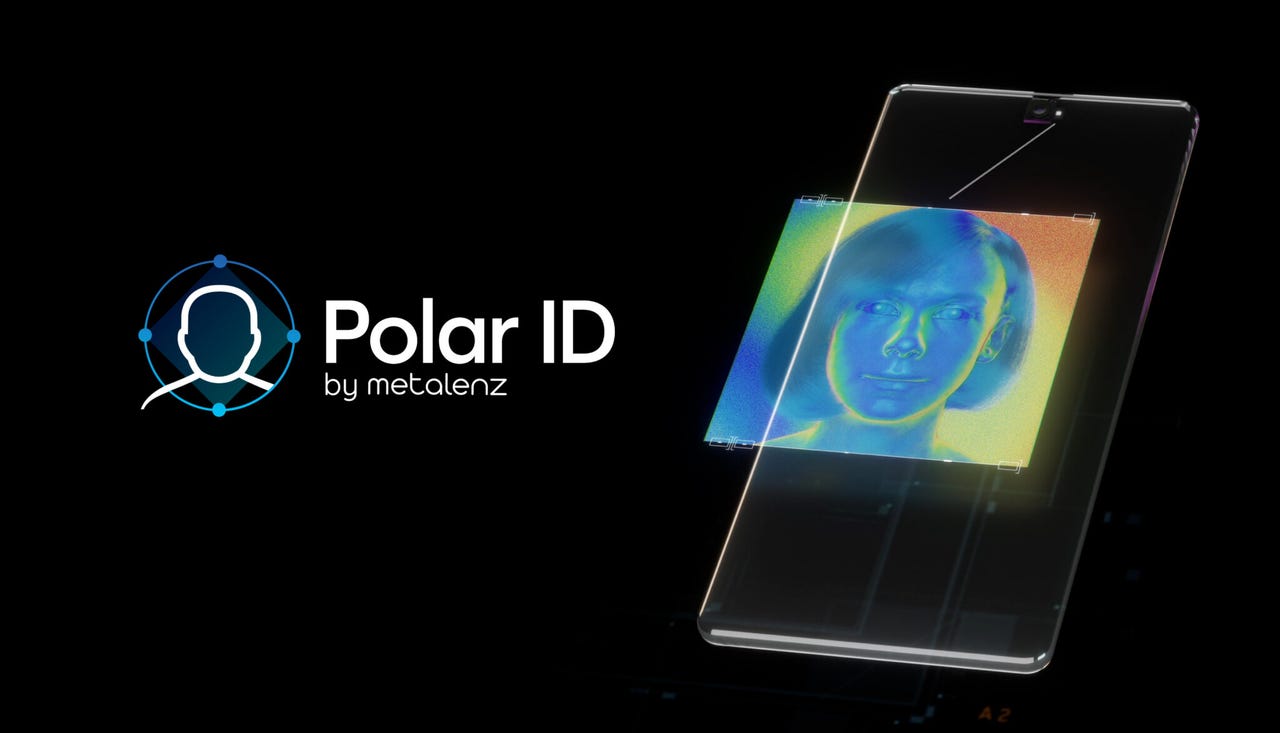
































Gone are the days of unlocking your phone with your thumbprint or passcode. Instead, facial recognition technology is found on almost every smartphone to make unlocking your phone seamless. However, the tech behind Face ID is costly, so Metalnz's Polar ID seeks to solve that issue -- and add other perks, too.
On Monday, Metalenz, an optics company based in Harvard Labs, announced at Mobile World Congress (MWC) that it is partnering with Samsung to launch Polar ID, a face-detecting sensor that's notably smaller, more affordable, and more secure than the current ones found in our smartphones.
Also: I tested 40 phones over the past year, and these are the very best
Polar ID differs from the current facial authentication process because it uses meta-optic technology to capture each person's unique "polarization signature" on their face by sensing the full polarization state of light. This technique requires an image sensor that can be paired with Metalenz's breakthrough polarization-sensitive meta-optic, and Metalenz chose Samsung Electronics' ISOCELL Vizion 931.
"Leveraging the performance and scale of Samsung's ISOCELL Vizion 931 image sensor allows our Polar ID cameras to quickly and efficiently determine the polarization information in a scene, from which our imaging algorithms and machine learning models authenticate the Polar ID images," said Rob Devlin, Metalenz CEO and co-founder.
Also: What is deep learning? Everything you need to know
The partnership allows Polar ID technology to be 50% smaller and cheaper than traditional face unlock solutions, according to the press release. In addition, Samsung's manufacturing scale will help to ensure Photo ID is rapidly adopted into smartphones as an efficient phone-unlocking solution.
"Our collaboration with Metalenz is not just about combining technologies; it marks a pivotal advancement in biometric imaging capabilities, making face unlock solutions with enhanced security and affordability accessible on a global scale," said CY Lee, Samsung VP of sensor sales and marketing.
Also: The best green phones: Sustainable and eco-friendly smartphones
The cost and scale advantages of Polar ID mean companies like Samsung, Google, and Apple can potentially use facial recognition technology more easily, creating benefits for consumers.
Those companies could then allocate resources to other parts of their phones, ideally leading to the production of more innovative designs and the use of better quality materials.
 Etiquetas calientes:
tecnología
Etiquetas calientes:
tecnología